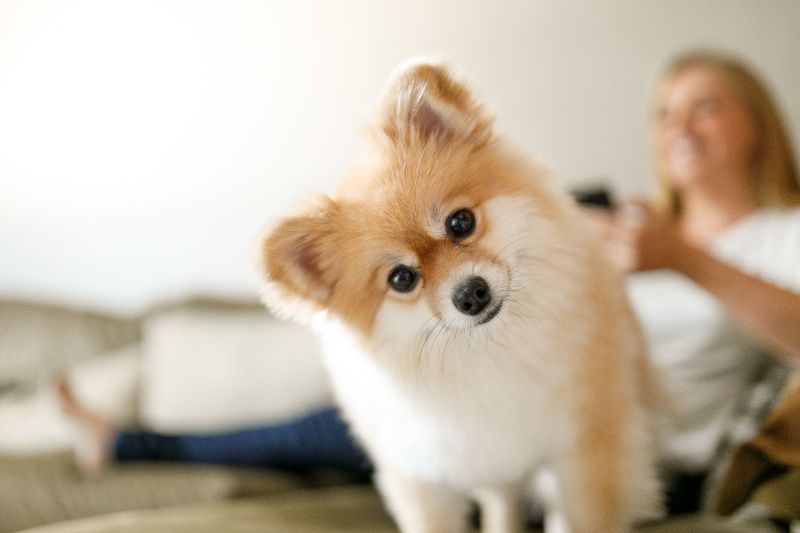
Helping Pets Adjust After COVID-19 Quarantine

Life as we once knew it may never be the same. But, as many cities begin to reopen or have already, returning to work, school, and other daily obligations seems like a major change. After all, having to set the alarm, anticipate commute times, get the kids ready for the day, and other normal routine activities can be an adjustment!
Now, imagine what our pets might be feeling through this change. They’ve had our 24/7 attention for several weeks, and suddenly we are gone much of the day.
At Arlington Animal Hospital, we have seen many new cases of separation anxiety in pets after the re-opening. This is why we’re here to help pets adjust after COVID-19 social distancing.
The Behaviors Associated with Stress and Anxiety in Pets
When we think about our furry loved ones, we probably don’t always consider their psychological or behavioral health and wellbeing. But dogs and cats can suffer from anxiety, phobia, and depression, like us. They just have a different way of exhibiting the emotional implications.
Separation anxiety is a disorder noted by an aversion to being alone. It is characterized through symptoms such as destructive chewing and digging, barking or vocalization, attempts to escape, shaking, and so on.
This can progress to a full blown phobia in some pets, and can result in decreased immunity and the potential for aggression in some animals.
Redirecting Separation Anxiety
After the pandemic is cause for this disorder in pets because pets are ruled by routine. If there is a sudden adjustment to what they are used to, especially spending time with you, the result can be anxiety and stress. Helping your pet cope with more solo time by slowly acclimating them to change is your best approach.
- Start by leaving them for a few hours at a time, increasing the amount of time away slowly, such as over two weeks.
- Reward your pet when you leave. Instead of focusing on your leaving, treat your pet to their normal breakfast or treat before you go. Upon returning, downplay the enthusiasm as if nothing is wrong that you were gone.
- Give your pet plenty of exercise. A tired pet is less likely to be destructive and will feel like they’ve had enough time to play and get active before you depart.
- Consider training and socialization if your pet is having problems with behavior, due to under-socialization (call us for more information).
- Give your pet something to do with their time. Use toys, treats, games, a window view of the backyard, and so on, so they have something to occupy their time.
- Ask us about calming treats and supplements that can support a more relaxed fur friend.
Other Considerations to Help Pets Adjust After COVID-19 Quarantine
Remember that change is hard on everyone. Most pets will have some level of difficulty if there is an abrupt change in the routine. The key to keeping them calm and happy is a slow introduction to the new order of life.
If your pet is having an especially difficult time and is having increasingly worse symptoms of separation anxiety, please call us for a wellness checkup. We can ensure there are no medical issues that are causing these issues, as well as offer other solutions to help pets adjust after COVID-19 shutdown.
Change is hard, but we can make things better to give your loved one a great and healthy life.
Contact Us!
2301 Columbia Pike #G-1, Arlington, VA 22204
Phone: (703) 920-5300
Fax: (703) 685-8860
Email: info@myarlingtonvet.com
Office Hours
-
Monday
8 a.m. – 8 p.m.
-
Tuesday
8 a.m. – 8 p.m.
-
Wednesday
8 a.m. – 6 p.m.
-
Thursday
8 a.m. – 6 p.m.
-
Friday
8 a.m. – 6 p.m.
-
Saturday
8 a.m. – 2 p.m.
-
Sunday
CLOSED
- Doctors’ hours are by appointment only.



